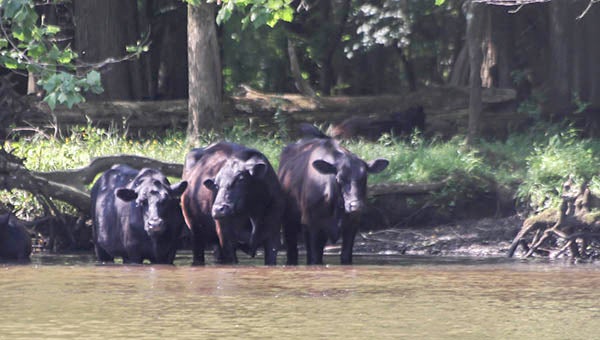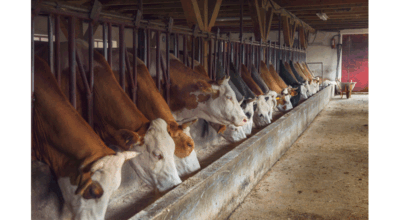Riverkeeper urges ranchers to take advantage of USDA fencing program
Published 11:07 am Wednesday, June 17, 2015

Cattle in the Blackwater River. Until the end of June, ranchers can take advantage of a USDA water conservation program for 100 percent funds to fence the livestock away from the river. — CAIN MADDEN | The Tidewater News
FRANKLIN
With less than a month to go in Virginia’s 100 percent funding for the U.S. Department of Agriculture Conservation Reserve Enhancement Program, Riverkeeper Jeff Turner is urging local cattle ranchers to consider taking advantage of it.
Excluding cattle from the river offers several benefits, according to a report from the Chesapeake Bay Commission, “Healthy Livestock, Healthy Streams.”
Animals the size of cows or horses destroy the vegetation around the bank by simply walking toward it to get water, and grazing only causes further damage and erosion.
The plants also act as a buffer in keeping nutrients out of the river and provide shade to cool the water. Cattle waste also discharges harmful chemicals and helps grow the bacteria population, which can have an impact on fish in the area.
According to the report, it’s also good for the livestock, as producers who have installed fences report improved herd health, calf survival rate, fewer sores and decreased leg injuries. Cows drinking from a better, cooler water source also drink more, which can lead to additional weight for beef cattle, up to a 5 percent increase.
In the Franklin area, the largest concentration of cows appearing in the Blackwater River is around the Pretlow Park, and Turner said he’s been trying to work with the owner for years.
“Cows in the river are bad, of course, for the Ecoli they impart from their waste and, of course, the extra nutrients that come from them,” he said. “Every year right in that area of the cows in the river, the duck weed is more prevalent. It’s easy to see the effect of those extra nutrients.”
It’s particularly disappointing because the health of the Blackwater River is already not great.
“The Blackwater already has Ecoli issues from the swamps upriver, plus the outdated Franklin Sewage Treatment Plant puts a lot of nutrients — and other bad stuff — in the river as well,” Turner said. “You can always tell that also because the algae bloom stops at Barrett’s Landing, and upriver there will be none or very little.”
Turner said the rancher often cites the large land area that would have to be fenced, though he estimates it would only take around 200 feet.
While a herder can apply for free funding for the fencing through the end of June, it’s not completely free. That’s because farmers have to maintain fences and watering troughs. But when ranchers do take advantage, it does deliver for the health of the river, and some say it’s as effective as upgrading a wastewater treatment plant.
According to the report, excluding cattle from streams reduced erosion by 77 percent and phosphorus by 81 percent.
Since it is good for the animals, as well as for the ecosystem, which is good for fishing and ecotourism, Turner hopes people will reconsider.
“It’s a shame the local farmer that has these cows does not do the right thing and take advantage of these programs that will help water quality in the river,” he said.





